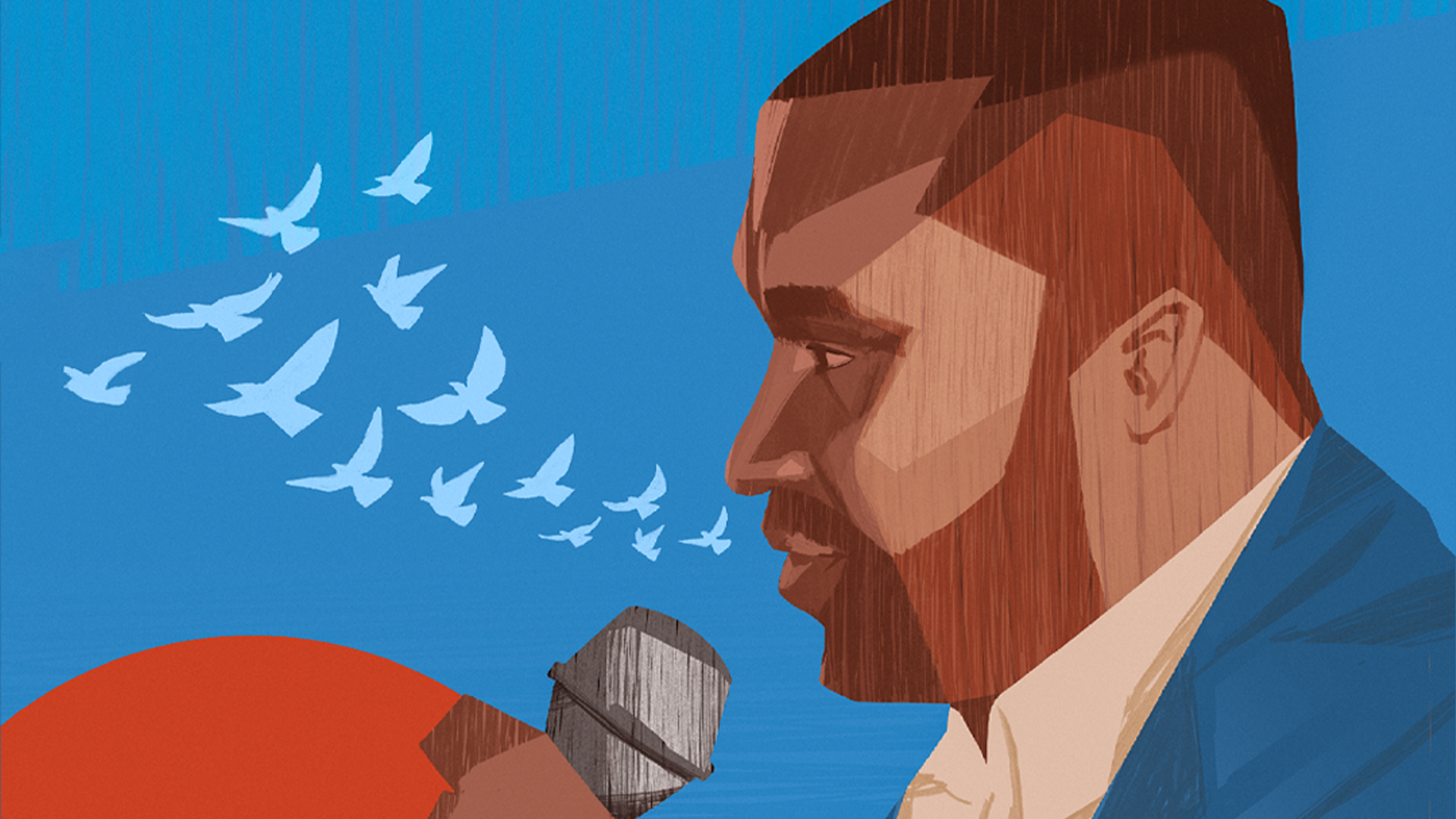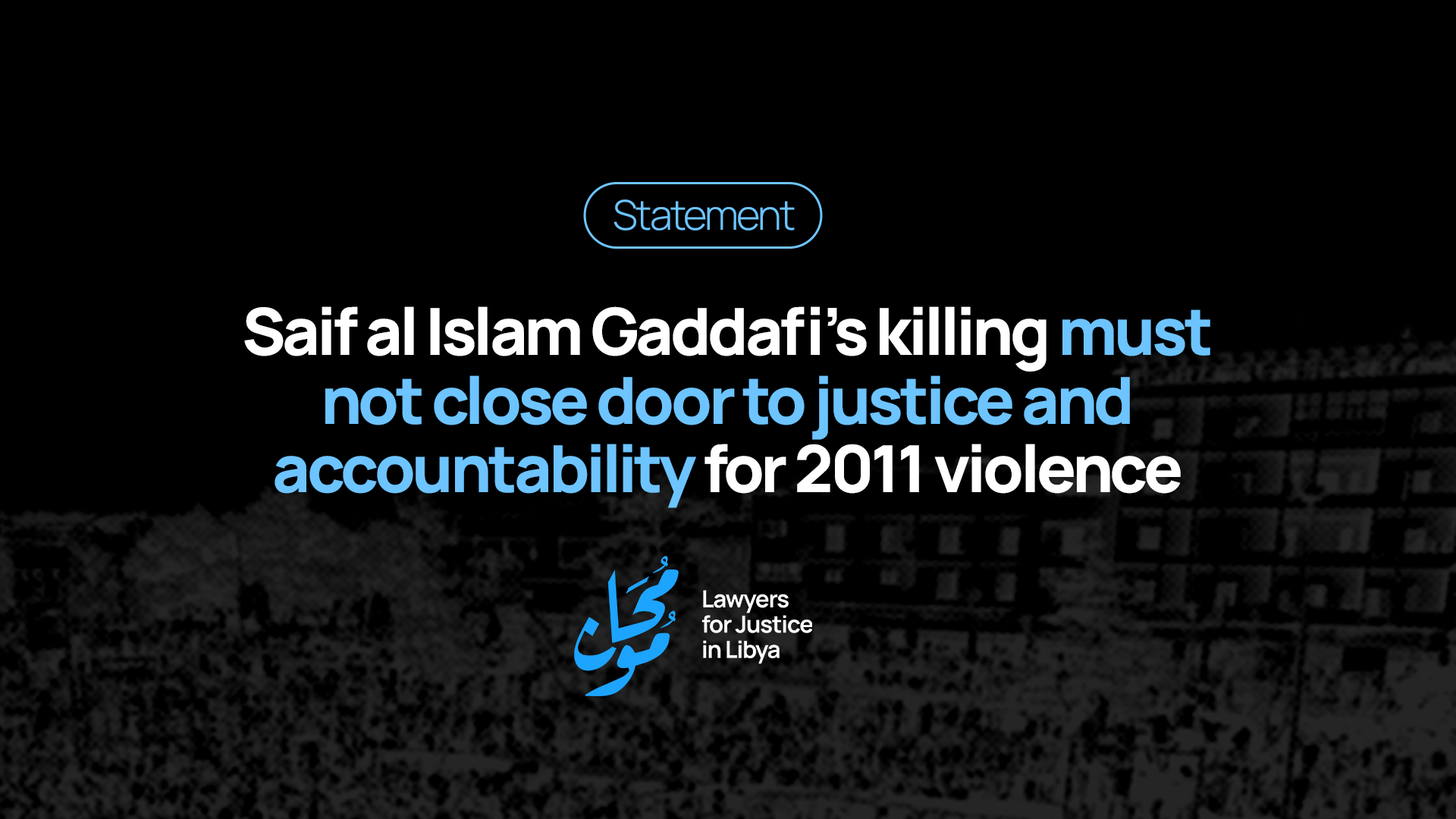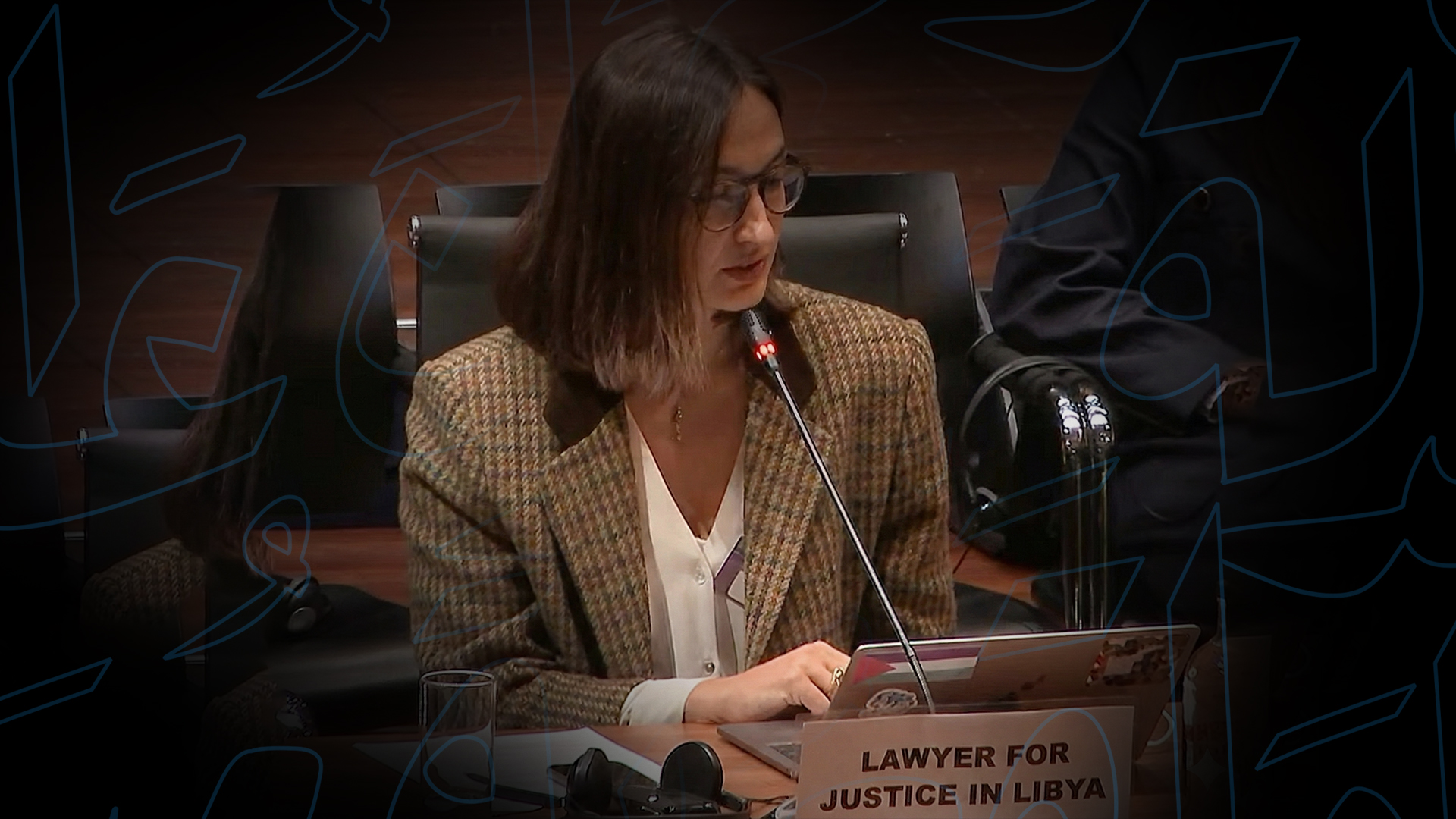On 29 June 2022, the US District Court in Virginia issued a default judgement charging Commander of the Libyan Arab Armed Forces (LAAF) Khalifa Haftar with war crimes. The unprecedented ruling is not only a victory for the plaintiffs but also serves as a beacon of hope for the thousands of other victims in Libya waiting for justice.
“The decision of the District Court in Virginia last week is the first of its kind and an encouraging step toward ending the rampant impunity for war crimes in Libya. As the Libyan judiciary has proved to be both unwilling and unable to hold accountable alleged perpetrators of serious international crimes, the decision of the US court sends a message of hope for victims desperately yearning for justice across the country,” said Marwa Mohamed, Head of Advocacy and Outreach at Lawyers for Justice in Libya (LFJL).
Between June 2019 and March 2020, a total of three separate lawsuits were filed against Khalifa Haftar by different plaintiffs, including direct victims of torture and other ill-treatment, as well as families of civilian victims killed by bombardments and indiscriminate shelling conducted by forces of the LAAF. In these three civil cases, the families are seeking compensation under the Torture Victim Protection Act of 1991, which allows non-US citizens to seek compensation from individuals who, acting in an official capacity for any foreign nation, allegedly committed torture or extra-judicial killing.1
On 10 June 2022, judge John Anderson filed an order that recommended the principal judge of the District Court in Virginia, Leonie Brinkema, grant a default judgement against Haftar noting that “despite the gravity of the claims at issue, [the] defendant has steadfastly refused to sit for a properly noticed and scheduled deposition after several years of litigation’’, and that the “blatant and consistent refusal to comply with his discovery obligations fully support a finding of bad faith.’’2
This decision is of paramount importance to the plaintiffs and their families, offering them recognition and compensation for their losses and injuries. The ramification of this judgement also resonates strongly in Libya among victims and those working towards justice.
“This news is undoubtedly an important step in the path of accountability, justice and redress for the victims. We believe this decision will be a starting point for other cases that may be brought against Khalifa Haftar and many others.” said Ali al-Asbali, President of Libyan Crimes Watch, a Libyan rights-based organisation.
Haftar is also facing two complaints in France in relation to alleged crimes, including torture, allegedly committed in Benghazi, the first in 2014 and the second in 2016/2017.3 On 24 November 2022, Karim Khan, The International Criminal Court (ICC) Prosecutor noted in his briefing to the UN Security Council that his office is investigating allegations of crimes within its mandate in Gernada and Al-Kuweifiya detention facilities.4
The UN Independent Fact-Finding Mission (FFM) reports echoed these claims, noting that in several prisons controlled by the LAAF, “evidence gathered demonstrates the systematic use of prolonged arbitrary detention as well as acts of murder, torture, rape and other inhumane acts against the predominantly civilian populations of these prisons, including vulnerable groups. The Mission has reasonable grounds to believe crimes against humanity are occurring in these prisons in the context of a systematic attack against those suspected of being members of terrorist organizations, or to repress freedom of expression, thought, and association with the aim to silence ideological opponents, journalists, activists and actual or perceived critics of the [LAAF].”5
Since 2011, LFJL has documented cases of gross human rights violations and serious international crimes committed by all parties in Libya, including torture and other ill-treatment, enforced disappearances, arbitrary detention, and extrajudicial executions. In some cases, the violations could amount to war crimes and crimes against humanity. Under international law, all those in command carry the legal responsibility for ordering or failing to prevent subordinates under their command from committing such crimes and should be held accountable.
In a recent report published by LFJL on perceptions of justice and accountability in Libya, survey respondents expressed a clear lack of faith in the Libyan criminal justice system and noted repeated examples of being unheard or let down, particularly with regards to human rights abuse cases.
“With the lack of any serious, effective and tangible accountability steps over the years that adequately responds to the desire of the victims and their families in Libya for redress and reparation, they find themselves today in urgent need for justice mechanisms abroad to step forward and fill the terrible accountability gap left by the national judiciary that lacks the ability and expertise to deliver justice for war crimes and other serious international crimes.” said another Libyan civil society member.
While the Libyan justice system remains ineffective, Universal Jurisdiction options will be the likely choice towards achieving justice for victims. LFJL calls on all investigative bodies including the ICC, to step-up its efforts towards accountability as a means to ensure justice for the thousands of other victims who continue to suffer in an environment of rampant impunity in Libya.
[1] Elzagallyet al v Haftar, Court Records, available here; Al Suyid et al v Haftar, Court Records, available here; Hamza et al v Haftar, Court Records, available here.
[2] Judge John F. Anderson, Proposed findings of facts and recommendations, Khalifa Haftarcourt case, US District Court of Virginia, 10 June 2022, available here.
[3] Trial International, Khalifa Haftar, available here.
[4] Statement of ICC Prosecutor, Karim A.A. Khan QC, to the United Nations Security Council on the Situation in Libya, pursuant to UNSCR 1970 (2011), 24 November 2021, available here.
[5] Report of the UN Independent Fact-Finding Mission on Libya, 27 June 2022, Para 40, available here.





